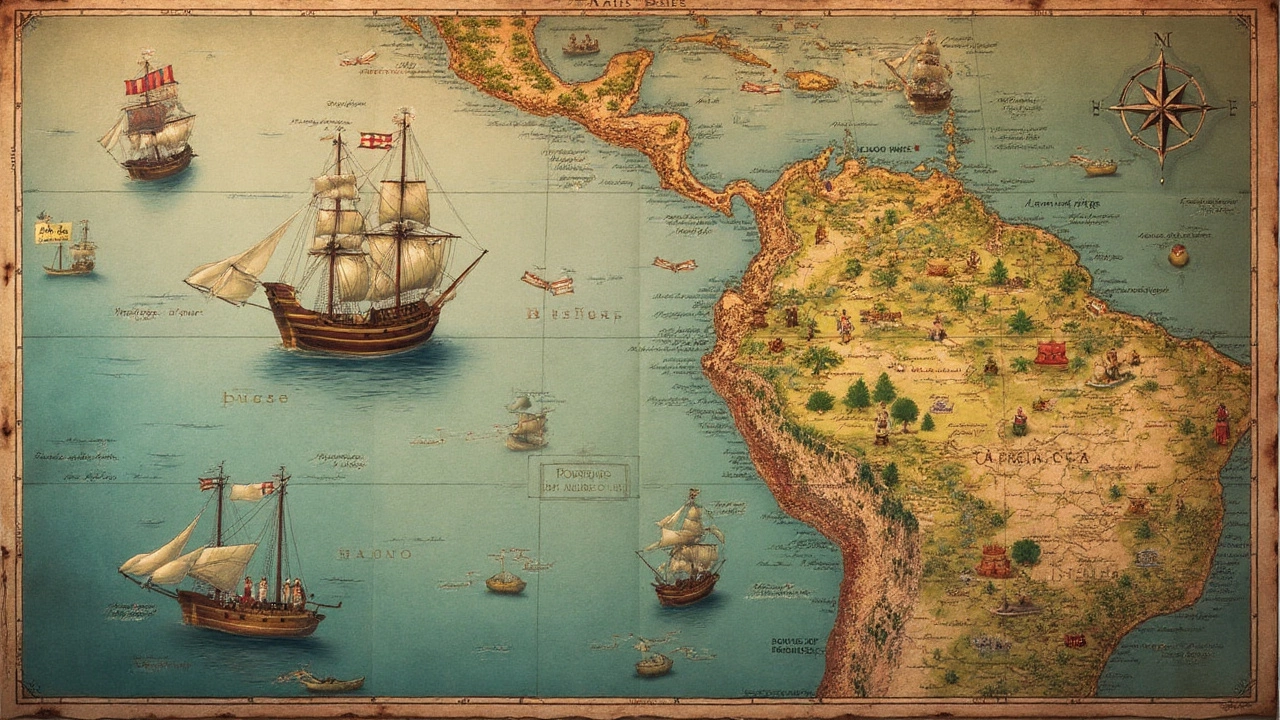History of Portuguese in Brazil – From Ship Decks to Everyday Talk
Ever wondered why Brazil speaks Portuguese when most of its neighbors use Spanish? The answer starts with a fleet of ships in the early 1500s and a handful of settlers who planted their language on new soil.
Early Arrival and Colonization
When Pedro Álvares Cabral landed in 1500, Portugal claimed the land and began a slow, steady influx of colonists. These settlers brought the Lisbon dialect, which mixed with Indigenous words for plants, animals, and places. The first written records, like the Jesuit letters, already show a blend of European and native vocabularies.
Brazil’s massive size meant the language spread unevenly. Coastal cities like Salvador and Rio de Janeiro became Portuguese hubs, while interior regions stayed largely Indigenous for decades. This uneven spread helped create regional accents that still exist today.
Slavery added another layer. Millions of Africans were brought to work on sugar plantations, and they injected African rhythms, expressions, and music into everyday speech. Even today, you’ll hear words like "pinga" (cachaça) and "samba" rooted in African languages.
Modern Evolution and Regional Flavors
In the 19th century, Brazil’s independence sparked a push to standardize the language. Writers like Machado de Assis championed a Brazilian style that differed from European Portuguese, favoring shorter sentences and everyday terms.
Immigration waves from Italy, Germany, and Japan added loanwords and unique pronunciations. The South, for example, uses "guri" (boy) from Italian influence, while the Amazon region retains many Tupi‑Guarani words for flora and fauna.
Technology also reshaped the language. Television, radio, and the internet spread a more uniform accent, but social media kept regional slang alive. Words like "cafezinho" (little coffee) or "sujeito" (guy) illustrate how Brazilians keep tweaking the language.
Today, Brazilian Portuguese is a living record of centuries of contact. It’s not just a language; it’s a map of history, showing where ships landed, where plantations grew, and where cultures collided.
If you travel across Brazil, notice how a word can sound different in Rio compared to Porto Alegre. Those variations are the legacy of the country’s layered past, and they keep the language vibrant and ever‑changing.
Understanding the history of Portuguese in Brazil helps you appreciate why the language feels both familiar and unique. It’s a reminder that every phrase you hear carries centuries of stories, migrations, and adaptations.
Why Do Brazilians Speak Portuguese? History, Language, and Surprising Facts

Unravel why Brazil speaks Portuguese and not Spanish. Explore the real historical twists, colonization, and cultural quirks in Brazil’s unique language story.
